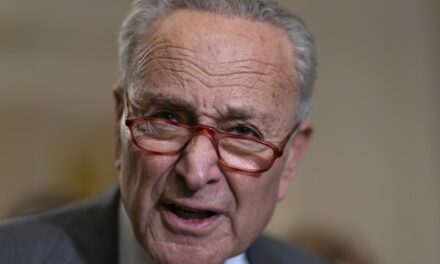We support our Publishers and Content Creators. You can view this story on their website by CLICKING HERE.
The curtain has finally come down on one of the longest acts in American history: after lingering in hospice care for nearly two years, Jimmy Carter is dead at the age of 100. Now, as we all learned in Latin class, de mortuis nisi bonum, that is, only say good things about the dead, and by most accounts, Jimmy Carter was a decent fellow who tried to do the right thing by his lights. There is no Latin maxim, however, about not speaking ill of a dead president’s time in the Oval Office, and on that score, a great deal can and should be said about Jimmy Carter.
Advertisement
Although Carter was the longest-lived president of the United States ever, it is a shame that he didn’t live even longer. The second Trump administration promises to put an end to the long, slow decline of the United States and the now well-established habit of betraying our allies that Carter did so much to initiate, and it’s too bad that Carter won’t be around to witness America’s resurgence — if, that is, the late president’s friends and ideological kin don’t manage to block any such rebound.
Back in 1978, when America was in the midst of Carter’s weak and sanctimonious presidency, the earnest chief executive lowered taxes and proposed cuts in federal spending. Then he immediately contradicted his efforts to bring fiscal responsibility to the enormous and ever-growing federal government by creating a new Cabinet-level agency, the Department of Education. This new agency introduced the federal government into areas that had hitherto been under private control; constitutional literalists pointed out that there was no mention of education in the nation’s founding document, and hence no clear warrant for the federal government to get involved in it.
Forty-plus years later, Carter’s Education Department bears vivid witness to the fact that putting something under the control of the federal bureaucracy invariably makes it less efficient, more wasteful, and more bloated than it would have been otherwise. The test scores of American students have been plummeting, and the left has used Carter’s department to introduce all manner of woke madness into American schools. Trump has pledged to close the Department of Education, and if he manages to do it, American students might have a fighting chance to get an education.
Advertisement
Carter also established the sanctimonious style of all subsequent Democrat presidents, with the partial exception of Bill “I Did Not Have Sexual Relations with That Woman” Clinton. On Apr. 18, 1977, with inflation and unemployment spiraling ever upward, Carter went on television in the guise of an apocalyptic prophet crossed with a scolding schoolmarm. In full prophet of doom mode, Carter informed Americans that the sky was falling: “The oil and natural gas that we rely on for 75 percent of our energy are simply running out…. Unless profound changes are made to lower oil consumption, we now believe that early in the 1980’s the world will be demanding more oil than it can produce…. World consumption of oil is still going up. If it were possible to keep it rising during the 1970’s and 1980’s by 5 percent a year, as it has in the past, we could use up all the proven reserves of oil in the entire world by the end of the next decade.”
Carter the peevish scold told Americans it was all their fault: “We must not be selfish or timid if we hope to have a decent world for our children and our grandchildren…. Each American uses the energy equivalent of 60 barrels of oil per person each year. Ours is the most wasteful nation on Earth. We waste more energy than we import. With about the same standard of living, we use twice as much energy per person as do other countries like Germany, Japan, and Sweden.”
Echoing Lyndon Johnson’s War on Poverty, Carter created another unwinnable war against a nebulous foe: “This difficult effort will be the ‘moral equivalent of war,’ except that we will be uniting our efforts to build and not to destroy.” But the whole endeavor was built on sand: there was actually no energy crisis. The world’s oil reserves did not run out in the 1980s, and not because Carter saved the day by winning his “moral equivalent of war.” The real problem was one that Carter only made worse: oil companies were so beset with restrictions and regulations that they couldn’t take adequate steps to find new oil supplies. Carter’s successor, Ronald Reagan, changed that, and the days of the energy crisis were over, at least until apocalyptic climate hysteria of a different kind became the centerpiece of later Democratic presidents’ efforts to assert even more federal control over the lives of Americans.
Advertisement
As is so often the case, it gets worse. In Sept. 1978, President Carter invited Egyptian President Anwar Sadat and Israeli Prime Minister Menachem Begin to the presidential retreat of Camp David to end the protracted conflict between the two countries. Sadat told his aides: “What we are after is to win over world opinion. President Carter is on our side. This will end in Begin’s downfall!” He was right. Carter told Sadat: “I will represent your interests as if they were my own. You are my brother.” A jubilant Sadat told his aides that “poor naïve Carter” was ready to pressure Begin into giving Egypt everything it wanted.
Sadat was right. “Mr. Prime Minister,” Carter told Begin icily after Sadat presented his proposals “that is not only the view of Sadat, it is also the American view—and you will have to accept it.” Angrily he repeated, “You will have to accept it.” These proposals included Israel’s withdrawal from the Sinai Peninsula, which Israel had occupied after Egypt attacked it in 1967. While territorial expansion at the expense of an aggressor nation had been recognized as a right of the victor in a war from time immemorial, Carter was determined that it would not apply to Israel. He also wanted Israel to acknowledge that it was carrying out an illegitimate occupation of Palestinian land. He complained to Begin: “Listen, we’re trying to help you bring peace to your land. You would have us feel that we are going out of our way deliberately to be as unfair to Israel as possible.” Indeed.
Carter received a great deal of praise, as well as a Nobel Peace Prize, for the Camp David Accords, but in reality, they accomplished little. The final agreement had Israel making substantial territorial concessions in exchange for promises that Egypt would not attack Israel, which the Egyptians kept because U.S. foreign aid was made contingent upon peace. Other than that, the Accords brought no peace to the Middle East. They legitimized the existence of the “Palestinian” people, a propaganda invention of the KGB in the 1960s, and advanced the claim that Israel was occupying Palestinian territory to which only Israel had a legitimate claim. After his presidency, Carter wrote several books about the Israeli-Palestinian conflict that have brought him charges of anti-Semitism; the deep bias of the Camp David Accords strongly suggests that, even at that time, he had an animus toward Israel. His palpable lack of sympathy for the Jews of Israel, who are permanently under siege, continued to the end of his long life.
Advertisement
As protests against the rule of another American ally, the shah of Iran, engulfed that country, Carter abandoned the shah to his fate. The shah later recounted: “The fact that no one contacted me during the crisis in any official way explains everything about the American attitude…. It is clear to me now that the Americans wanted me out.” On Jan. 4, 1979, Carter told French President Valéry Giscard d’Estaing that the U.S. was abandoning its ally, withdrawing all support from the shah and backing the Ayatollah Khomeini. “I was horrified,” recalled Giscard. “The only way I can describe Jimmy Carter is that he was a ‘bastard of conscience.’” On January 16, 1979, the shah and his family left Iran. The Islamic Republic of Iran was established soon after.
Related: Canada, the Panama Canal, and Now Greenland. What’s Behind Trump’s Expansionist Rhetoric?
Nine months later, on Oct. 23, 1979, Carter reluctantly allowed the gravely ill shah to enter the U.S. for medical treatment. On Nov. 4, a group calling itself Muslim Student Followers of the Imam’s Line (that is, Khomeini’s line) retaliated by entering the U.S. embassy compound in Tehran and taking hostage the skeleton staff of sixty-six that was still serving there after the fall of the shah. Khomeini sneered, “Jimmy Carter is too much of a coward to confront us militarily.” Carter did, however, mount Operation Eagle Claw to rescue the hostages in April 1980, which was a miserable failure; a crash killed eight U.S. military personnel. Fifty-two hostages remained in captivity for 444 days, only to be freed on Jan. 20, 1981, the day Reagan took office. A pattern of American impotence and betrayal of its allies was established.
Advertisement
On top of all that, of course, Carter gave away the Panama Canal, another America-Last decision that Trump has vowed to reverse.
As president, Jimmy Carter was as sanctimonious as he was inept. America is still paying the price for the damage he wrought during his presidency. It is a shame that he will not see efforts to reverse the effects of his disastrous legacy.

 Conservative
Conservative  Search
Search Trending
Trending Current News
Current News 







